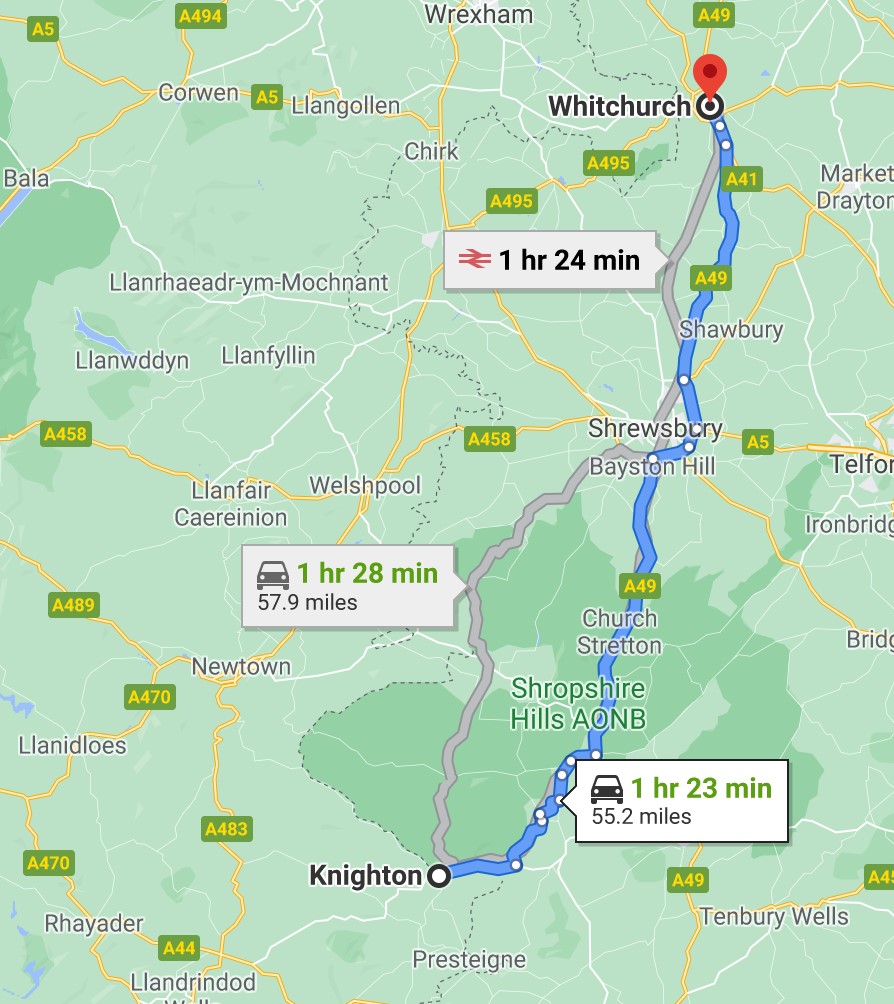‘Sustainable’ Powys?
THE NEW “SUSTAINABLE” POWYS, WALES, declared a climate change emergency in September 2020.
Have Powys decision-makers looked at reports such as ‘Climate Change and Land’[¹] (IPCC 2019)? Apparently not.
As well as recommending moves towards diversified and genuinely sustainable food production systems, the report calls for recognition of the climate change implications of all stages of food production, which for intensive livestock will include feed production and related deforestation[²], transport, processing, manure and nutrient management, anaerobic digestion, and all associated environmental impacts.
Meanwhile, in Powys…

The proposed 110,000 broiler unit in two sheds at Llanshay Farm, Knighton lies above the River Teme Site of Special Scientific Interest (SSSI). There were objections to the plan to spread all the manure on land running down to the nearby Teme at Llanshay and Lower Pedwardine in Herefordshire. Powys has quashed the approval of this application following a successful Judicial Review procedure. Now the plans have been changed to take the 2,000 Tonnes a year of poultry waste to an anaerobic digester in Whitchurch, Shropshire, England, 55 miles away.

At Dol y Dre farm, Llandewi, close to the even more strictly protected River Ithon, the owner wants to add another 150,000 broilers, in three new sheds, to his 134,000 boilers in three sheds. Natural Resources Wales (NRW) have recently issued a statement saying that new development draining to the failing river Wye SAC Special Area of Conservation (SAC) must be “phosphate neutral”. Now NRW is satisfied with the altered plans to export 2,700 Tonnes a year of poultry waste with agricultural contractors Gamber of Grafton, Herefordshire, England, 40 miles away.
Just two examples of the new idea to keep the unsustainable Powys poultry industry expanding by racking up the huge carbon costs even further.
There are around 10 million intensively reared chickens already in Powys. Nearly all poultry and pig units spread high-phosphate manure in our Wye and Severn catchments with NRW and Powys approval. A few send manure to digesters but the phosphate is still there in the digestate and this is also spread on land.
New Welsh legislation on 1/4/21 gives farms 2 years preparation time to reduce manure spreading rates by one third. Existing intensive poultry and pig farmers will struggle to make this change designed to save our rivers, soils and biodiversity. They will need help. Carbon-guzzling manure export may be a last resort but this must be reserved for established units. Instead of thinking ahead, NRW, who are supposed to protect our environment, are letting more trouble build up. They are approving new units with the inevitable consequence of making a highly polluting industry even less sustainable. Wales is farming out its precious environment to multinational corporations operating in England.
Branch objections to poultry applications: See ‘Planning: How to respond to an application – a guide & branch objections’.
References:
[1] Intergovernmental Panel on Climate Change 2019 https://www.ipcc.ch/srccl/
[2] https://thebureauinvestigates.com/stories/2020-11-25/british-chicken-driving-deforestation-in-brazil
